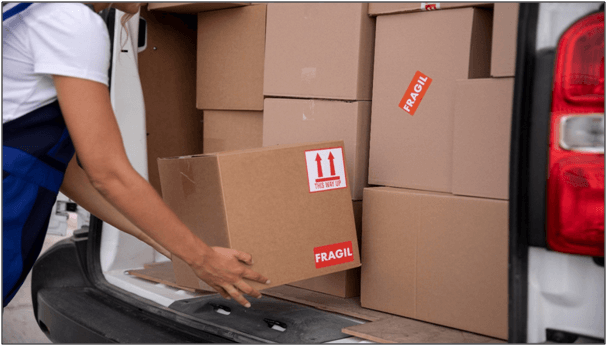Land transportation logistics is a crucial aspect of supply chain management that involves the movement of goods and products on land. It requires a comprehensive understanding of various factors, such as transportation mode, routing, type of packaging, environmental impact, and cost. Businesses need to consider these critical logistics factors to ensure that their goods are transported efficiently, safely, and cost-effectively. In order to guarantee seamless and effective delivery of goods by land, it is essential to consider several crucial factors during the planning and implementation of land transportation operations.
Table of Contents
Selecting Mode of Transportation
The mode of transport is an essential consideration for land transportation logistics. It involves choosing the most appropriate transportation method based on the type of goods being transported, the distance, and the destination. There are three main modes of transport for land transportation: road, rail, and waterways. The choice of mode depends on various factors such as the size and weight of the goods, the urgency of delivery, and the cost of transportation. Each mode of transport has its advantages and disadvantages that should be considered before making a decision. Road transport is the most common and flexible mode of transport, while rail transport is efficient for transporting large volumes of goods over long distances. Waterways transport is ideal for bulky goods over long distances, but it is limited to areas with water access. The choice of an appropriate mode of transport is crucial for land transportation logistics to ensure safe and efficient delivery of goods. It is essential to consider factors such as the size and weight of the goods, the urgency of delivery, and the cost of transportation before making a decision.
Planning and Coordination
To ensure timely and efficient transportation of goods, proper planning and coordination are essential. This includes establishing efficient routes, scheduling pickups and deliveries, and communicating effectively with carriers, shippers, and receivers. Proper planning and coordination help to avoid delays, minimize costs, and ensure efficient use of resources. One of the key aspects of proper planning and coordination is to create a detailed transportation plan that outlines the mode of transport, the route to be taken, the timing of delivery, and the necessary permits and documentation. This plan should also consider potential risks, such as weather conditions, traffic congestion, and any other obstacles that could affect the movement of goods. Effective communication is essential for proper planning and coordination. All parties involved, including the logistics team, suppliers, carriers, and customers, should be kept informed of any changes or delays that may occur. Collaboration and coordination among all parties help to ensure that the movement of goods is executed efficiently and on time.

Environmental Impact
The transportation of goods over land can have a significant impact on the environment, including increased greenhouse gas emissions, air pollution, noise pollution, and degradation of natural resources. To minimize the environmental impact of land transportation, companies can implement a variety of measures, such as using fuel-efficient vehicles, planning efficient routes, using alternative fuels, optimizing cargo loads, using intermodal transportation, using eco-friendly packaging, and implementing green logistics practices. By prioritizing sustainable logistics practices, companies can reduce their carbon footprint, improve their reputation, and comply with environmental regulations. This helps ensure that land transportation is done in a way that is environmentally responsible and sustainable.

Packaging and Loading
Proper packaging and loading help to ensure that goods are protected during transit, minimize damage, and maximize the use of available space. The packaging of goods plays a critical role in land transportation logistics. It involves selecting appropriate packaging materials and methods to protect goods from damage during transit. Proper packaging helps to ensure that goods arrive at their destination in the same condition as they were when they left. Packaging materials used for land transportation should be sturdy, durable, and able to withstand the rigors of transportation. The packaging should also be designed to fit the size and shape of the goods being transported. For example, fragile items may require additional padding or cushioning to protect them during transit. In addition, packaging should be labelled with the necessary information, such as the contents, weight, and destination. This information helps carriers to handle the goods appropriately and ensures that they are delivered to the correct destination. Loading is another critical logistics consideration for land transportation. It involves the efficient use of available space to maximize the amount of goods that can be transported in a single trip. Proper loading helps to reduce transportation costs and minimize the environmental impact of transportation. When loading goods onto a vehicle, it is important to ensure that the weight is evenly distributed to prevent damage to the vehicle and ensure safe transportation. Overloading can lead to accidents, increased wear and tear on the vehicle, and damage to the goods being transported. Goods that need to be delivered first should be loaded last to ensure easy access during unloading. By doing this, delays can be minimized and it can be ensured that goods are delivered punctually. Efficient loading also helps to reduce the number of trips required to transport goods, which helps to minimize transportation costs and reduce the environmental impact of transportation.
The full content is only visible to SIPMM members
Already a member? Please Login to continue reading.


